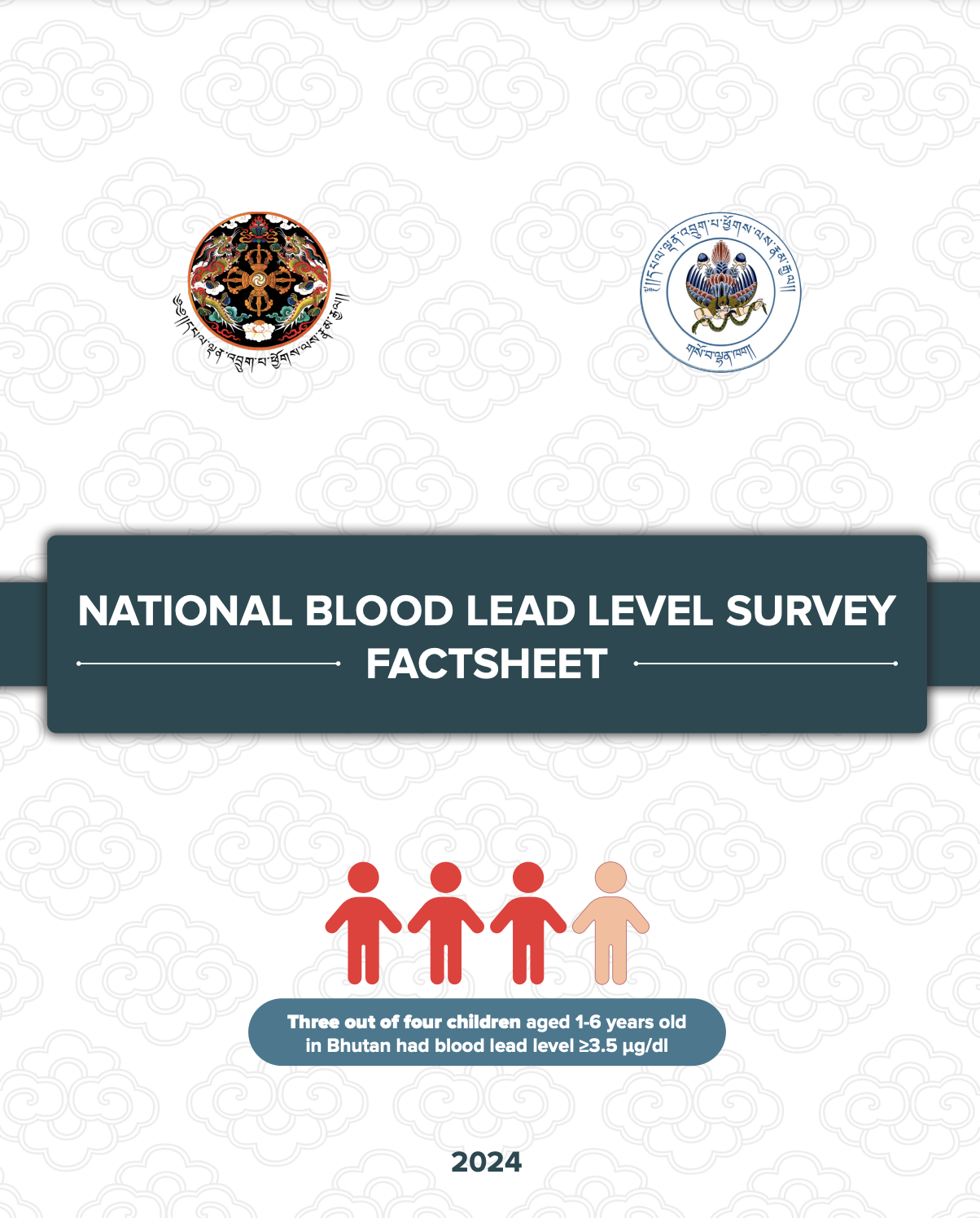Around 3,000 children were selected from different districts in Bhutan in this first-ever National Blood Lead Level (BLL) Survey conducted by the Ministry of Health with support from UNICEF, WHO, IPSAHD, and Faculty of Nursing and Public Health, KGUMSB. The survey also included 124 pregnant or breastfeeding mothers and 207 children in monastic institutions in Bhutan.
One of the survey's most striking findings was that 76 per cent of children in Bhutan have blood lead levels of 3.5 micrograms per deciliter or higher. Additionally, 86 per cent of children from monastic institutions also exhibited concerning lead levels. The issue of lead poisoning is prevalent across all districts, affecting both rural and urban areas and households of varying wealth.
